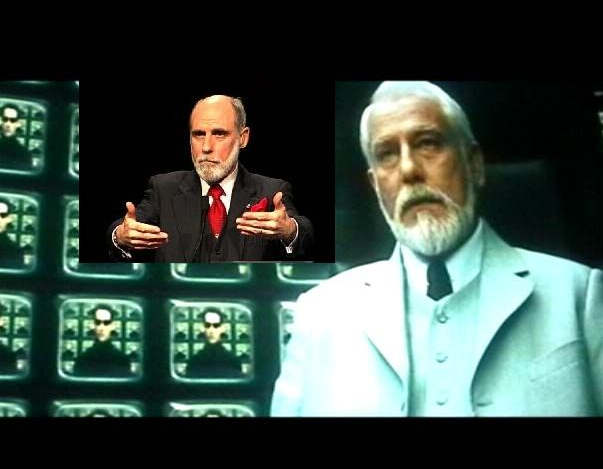 Reality Sandwich |
Reality Sandwich | In the book Columbus and other Cannibals, indigenous author Jack D. Forbes lucidly explores a psychological disease that has been informing human self-destructive behavior that Native American people have known about for years. After reading his book, it was clear to me that he was describing the same psycho-spiritual disease of the soul that I wrote about in my book, The Madness of George W. Bush: A Reflection of our Collective Psychosis. I introduce the idea that from the dawn of human history our species has fallen prey to a collective psychosis which I call malignant egophrenia. Speaking about this very same psychic epidemic, Forbes writes, "For several thousands of years human beings have suffered from a plague, a disease worse than leprosy, a sickness worse than malaria, a malady much more terrible than smallpox."[i] Indigenous people have been tracking the same "psychic"[ii] virus that I call malignant egophrenia for many centuries and calling it "wetiko," a Cree term which refers to a diabolically wicked person or spirit who terrorizes others. Professor Forbes, who was one of the founders of the Native American movement during the early sixties, says, "Tragically, the history of the world for the past 2,000 years is, in great part, the story of the epidemiology of the wetiko disease."[iii] Wetiko/malignant egophrenia is a "psychosis" in the true sense of the word as being a "sickness of the soul or spirit." Though calling it by different names, Forbes and I are both pointing at the same illness of the psyche, soul and spirit that has been at the root of humanity's inhumanity to itself.
As if performing a magic ritual, in exploring the entity of wetiko, we first have to invoke its spirit and enter into relationship with it. We must contemplate and engage wetiko as objectively as we are able, as if it exists outside of ourselves, lest we get too "mixed up" with the object of our contemplation. Due to its unique psychic origin, the epidemiology of wetiko is different than any other disease. An intrinsic challenge to our investigation of the wetiko virus is that it is incarnating in the very psyche which itself is the means of our investigation. Aware of this conundrum, Forbes explains that he is attempting to examine the disease, "from a perspective as free as possible from assumptions created by the very disease being studied."[iv] If we are not aware of the frame of reference through which we are examining the wetiko virus, our investigation will be tainted by the disease, obscuring the clear vision needed to start the healing process. Studying how wetiko disease manifests in others, as well as in the "other" part of ourselves, will help us to see "it" more objectively. Seeing this psychological disease manifesting in the world is the looking glass through which we can potentially recognize this same illness as it arises subjectively within our own minds.
After evoking an entity like wetiko, in order to study it as objectively as possible, we have to hermetically seal it within an alchemical container. This ensures that its mercurial spirit doesn't vaporize back into the invisibility of the unconscious, where it would act itself out through us. Jung continually emphasized the importance of developing a container or vessel in which to catch troublesome spirits like wetiko. He writes, "Therefore, if anything is wrong, take it out of its place and put it in the vessel that is between your neighbor and yourself...For love of mankind, create a vessel into which you can catch all that damned poison. For it must be somewhere -- it is always somewhere -- and not to catch it, to say it doesn't exist, gives the best chance to any germ."[v] Wetiko is an elusive spirit that is challenging to pin down and say it is "this" or "that." At the same time, it is critical that we attempt to delineate its properties. Unlike a physical virus, the wetiko bug can not be isolated materially, but its characteristic signature can be detected and seen in the peculiar operations of a psyche that is under its spell. To not recognize the existence of the wetiko germ -- "to say it doesn't exist" -- allows the psychic infection to act itself out unrestrained. Being "always somewhere" is to be nonlocal, which means that it is always around, even potentially, or especially, within ourselves. In calling forth the wetiko spirit, we are simultaneously creating, through our inquiry itself, the container in which we can study this bug so as to understand what in fact we are dealing with, see how it operates out in the world, in others, and subjectively, within ourselves. In order to come full circle in our contemplative exercise/exorcise, we have to homeopathically take our contemplation back within ourselves. As if in a dream where the inner is the outer, we can recognize that the wetiko virus that we have been tracking "out there," outside of ourselves, is a reflection of and co-related to the same process within ourselves. Encoded in wetiko's symptomology is a revelation, something that is most important for us to know.
A Disease of CivilizationWetiko/malignant egophrenia is a disease of civilization, or lack thereof. To quote Forbes, "To a considerable degree, the development of the wetiko disease corresponds to the rise of what Europeans choose to call civilization. This is no mere coincidence."[vi] The unsustainable nature of industrial civilization is based on, and increasingly requires violence to maintain itself. Genuine "civilization," in essence, means not killing people. Referring to the lack of "civility" in modern society, Gandhi was asked what he thought of Western civilization and responded by saying, "I think it would be a good idea." It makes sense that native people would know about malignant egophrenia, as they were both oppressed by, but weren't, at least initially, under the "curse" of modern civilization.
 NewScientist | EUROPEANS may have used magic mushrooms to liven up religious rituals 6000 years ago. So suggests a cave mural in Spain, which may depict fungi with hallucinogenic properties - the oldest evidence of their use in Europe.
NewScientist | EUROPEANS may have used magic mushrooms to liven up religious rituals 6000 years ago. So suggests a cave mural in Spain, which may depict fungi with hallucinogenic properties - the oldest evidence of their use in Europe. 























